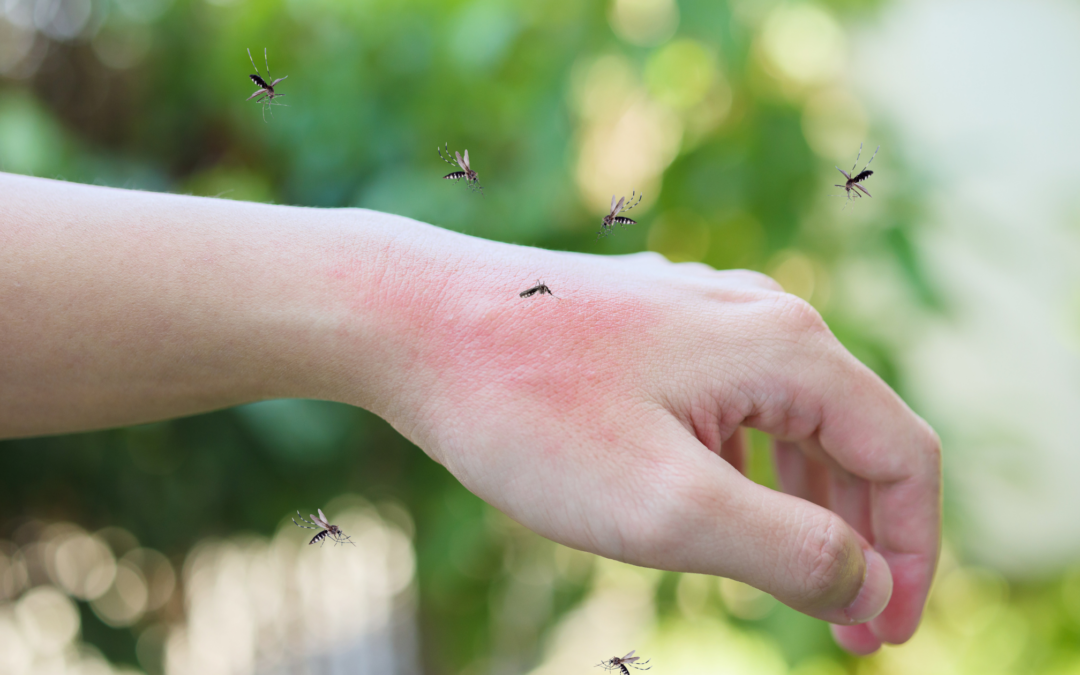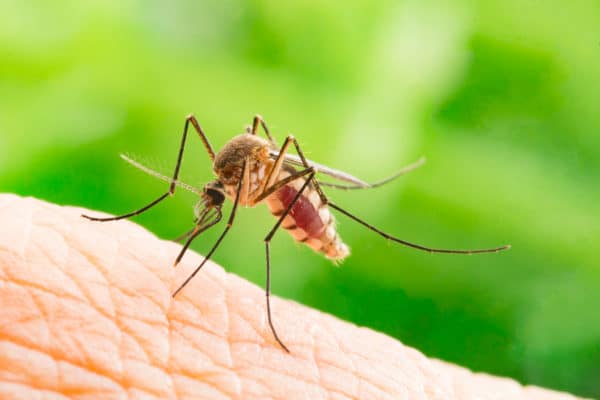READY TO GET STARTED?
REQUEST A FREE ESTIMATE
Fill out the form below or call (888) 466-7849 for a free, no-obligation estimate.

In the warm and humid climate of Georgia, mosquitoes are a common nuisance, particularly during the summer months. While their buzzing may seem harmless, mosquito bites can lead to discomfort and even pose health risks. Understanding how to identify, treat, and prevent these bites is essential for maintaining a safe and enjoyable outdoor experience. In this guide, we’ll delve into everything you need to know about mosquito bites and how to deal with them effectively.
Mosquito bites are typically small, red, and itchy bumps on the skin. They often appear in clusters and can be easily mistaken for other insect bites. However, there are some distinguishing features of bites from mosquitoes that can help you identify them. They usually have a central puncture mark, where the mosquito has inserted its proboscis to draw blood. Additionally, they tend to itch more intensely compared to other insect bites.
Aside from the characteristic red bumps and itching, bites from mosquitoes can sometimes cause more severe reactions in certain individuals. These symptoms may include swelling, soreness, and even blistering around the bite area. In rare cases, individuals may experience allergic reactions to mosquito saliva, leading to symptoms such as hives, difficulty breathing, and swelling of the face or throat. It’s essential to seek medical attention immediately if you experience severe allergic reactions to these bites.
Mosquito bites not only cause discomfort but also carry the risk of transmitting various diseases. In Georgia, mosquitoes can transmit diseases such as West Nile virus, Eastern equine encephalitis, and Zika virus. Additionally, pets are also susceptible to mosquito-borne illnesses, including heartworm disease in dogs. Mosquito control is crucial for protecting both humans and pets from these potentially harmful diseases.
The duration of insect bites can vary depending on individual factors such as skin sensitivity and immune response. In general, mosquito bites typically last for a few days to a week. However, the itching and discomfort can persist for longer periods in some cases. Proper treatment and care can help alleviate symptoms and speed up the healing process.
When it comes to treating bites from mosquitoes, there are several home remedies and over-the-counter options available. Calamine lotion or hydrocortisone cream can help reduce itching and inflammation. Applying a cold compress or ice pack to the affected area can also provide temporary relief. Additionally, antihistamines can help alleviate itching and discomfort caused by the bites. For severe reactions or signs of infection, it’s best to consult a healthcare professional for proper evaluation and treatment.
Prevention is key when it comes to avoiding mosquito bites. Here are some effective strategies to minimize your risk of being bitten:
Mosquito bites are more than just a nuisance—they can pose serious health risks to humans and pets alike. By understanding how to identify, treat, and prevent them, you can enjoy the outdoors safely and comfortably. Remember to take proactive measures to control mosquitoes around your home and minimize your exposure to these pesky insects. If mosquito infestations persist despite your efforts, consider seeking professional assistance from a trusted mosquito control company to address the issue effectively. Stay informed, stay protected, and enjoy a bite-free summer in Georgia!

Mosquitoes are one of the most common pests active during the spring and summer months. While most consider them a nuisance with their incessant buzzing and itchy bites, mosquitoes can also be dangerous to both humans and pets, transmitting serious diseases like Zika and West Nile to humans and heartworms and encephalitis to pets. Peak season for mosquitoes is from April to October. What methods for mosquito control are out there? How long do they last? Find out the answers to these questions and more below.
Mosquitoes will begin to lay eggs or previously laid eggs will begin to hatch when the temperature outside consistently reaches 50 degrees in the evenings. Peak mosquito season typically runs from April through October.
There are several benefits included in a mosquito treatment. Green mosquito treatments use products derived from flowers and bacteria and are applied only to areas needed, reducing adult mosquito populations as well as mosquito larvae. A typical mosquito treatment program may include a property inspection to identify potential mosquito breeding and resting areas in and around your home and yard; a service guarantee to come back in between scheduled visits if needed at no charge; mosquito source reduction by eliminating areas of standing water such as clogged gutters, containers, bird baths, etc; larvicide mosquito treatments to target those potential breeding sites; and adulticide mosquito treatments to target adult mosquito resting areas like shrubs, ivy, weeds, small trees, shaded areas.
Several factors affect the longevity of a mosquito treatment including weather, environment, application technique and the mosquito population levels around your home. A typical mosquito treatment lasts about 30 days. After this time, the material begins to degrade making your mosquito protection less effective. It is recommended that mosquito treatments should be applied monthly for the duration of mosquito season.
In general, if your property is less than 1 acre the mosquito treatment will be applied to the entire yard. If your property is greater than 1 acre, technicians will usually start with a treatment area of about 1 acre and progress as needed. The treatment will specifically be applied to the perimeter of the yard in areas of foliage, woods, and shaded damp areas. These are the areas where mosquitoes prefer to rest during the day. This creates the largest impact while using the least amount of product.
Mosquito bites are itchy and sometimes painful; they can also be dangerous as they can transmit serious diseases to both humans and animals. There are several steps you can take to prevent mosquito bites. Use insect repellent any time you will be outside. This repellent should include one of the following ingredients: DEET, Picaridin, IR3535, oil of eucalyptus (OLE), para-menthane-diol (PMD), or 2-undecanone. Cover up with long sleeves and pants. Tuck pants into your shoes if possible. Treat boots, pants, socks, and even tents with permethrin. Use air conditioning or window and door screens to keep mosquitoes out of your home. Make sure screens are in good repair with no holes or tears. Cover cribs, strollers, and carriers with mosquito netting. Once a week empty, scrub, turn over, cover, or throw out any items that can hold standing water such as buckets, planters, toys, pools, birdbaths, flower pots, and trashcans.
Mosquito bites are not only painful, they can cause severe reactions if you have a mosquito allergy. There are several things you can do to treat mosquito bites. First and foremost, don’t scratch the bite. Scratching may temporarily relieve the itching but it also continues to irritate and inflame the skin and can lead to infection. Wash the bite with cool water and soap instead. Try calamine lotion or Caladryl on the bites; there are also several new products containing cortisone or other antihistamines such as AfterBite that can help relieve itching. Use a cold compress or ice pack on the bite to help reduce inflammation. Try an oral antihistamine like Benadryl to help with itching. These take longer to work but can also provide longer relief.
Home Remedies To Keep Snakes Away
Keeping Wildlife Out This Spring
Do I Really Need Termite Protection?